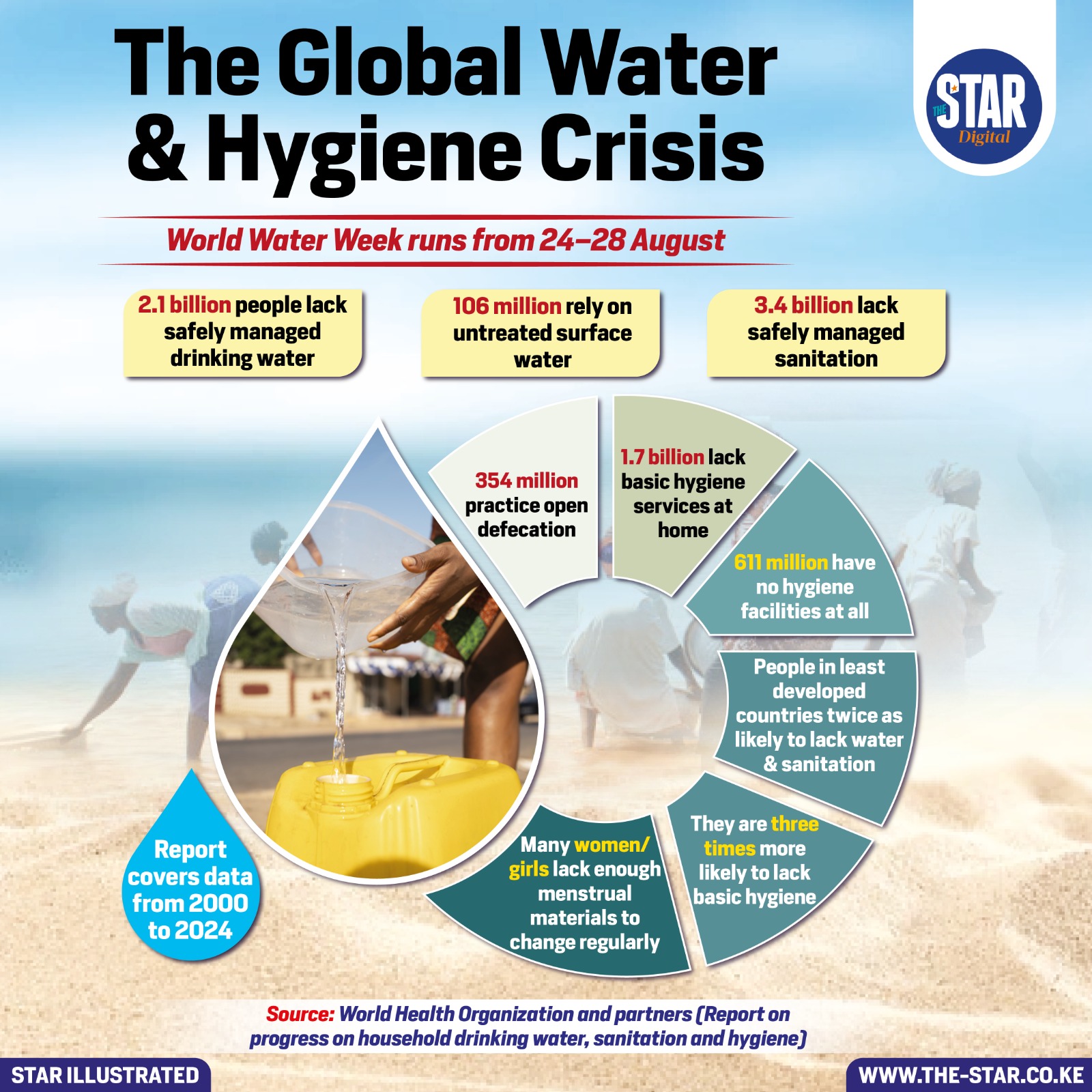
World Water Week 2025: What you need to know
Runs from 24–28 August
Over 2.1 billion people still lack safely managed drinking water.
In Summary

Access to clean water, sanitation, and hygiene remains one of the most pressing global challenges.
Over 2.1 billion people still lack safely managed drinking water, while 3.4 billion live without adequate sanitation.
These gaps are not just numbers—they represent daily struggles for health, dignity, and opportunity.
In the least developed countries, the odds of lacking basic services are twice as high, with millions relying on untreated surface water or practising open defecation.
Hygiene is another critical frontier: 1.7 billion people lack basic hygiene services at home, and over 600 million have no facilities at all.
The crisis disproportionately affects women and girls, many of whom lack access to menstrual materials and safe sanitation spaces. These conditions heighten vulnerability to disease, hinder education, and perpetuate cycles of poverty.
Despite global efforts, progress remains uneven and slow. The statistics underscore the urgency of targeted investments, policy reforms, and community-driven solutions.
As the world marks milestones like World Water Week, the call is clear: water and hygiene are not optional—they are foundational to human development, equity, and resilience.

Runs from 24–28 August